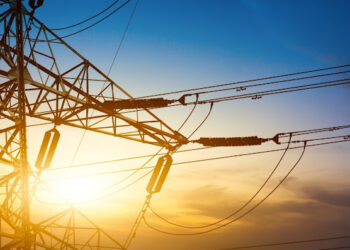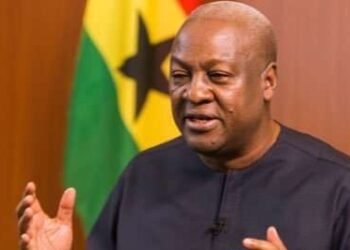In a bid to boost the domestic shipbuilding industry, the United States has unveiled new port fees on Chinese-built and operated ships.
The move – which stems from a probe launched under the prior administration – comes as the US and China are locked in a major trade war over President Donald Trump’s tariffs and could further escalate tensions.
Under the new rule, per tonnage or per container fees will apply to each Chinese-linked ship’s US voyage, and not at each port as some in the industry had worried.
The fee will be assessed up to five times per year, and can be waived if the owner places an order for a US-built vessel.
There will be separate fees for Chinese-operated ships and Chinese-built ships, and both will gradually increase over subsequent years.
For Chinese-built ships, the fee starts at $18 per net ton (NT) or $120 per container – meaning a ship with 15,000 containers could incur a fee of $1.8m.
Fees on Chinese ship owners and operators will initially be charged $50 per ton of cargo, rising by $30 a ton each year for the next three years.
Fees on Chinese vessel owners and operators of ships built in China will be based on the weight of their cargo, how many containers they carry or the number of vehicles onboard.
For affected bulk vessels, the fee will be based on the weight of their cargo, while the charge for container ships will depend on how many containers a vessel is carrying.
All non-US built car carrier vessels will also be hit with a fee beginning in 180 days.
US Trade Representative, Jamieson Greer said in a statement announcing the new fees, most of which will begin in mid-October, that ships and shipping are vital to American economic security and the free flow of commerce.
“The Trump administration’s actions will begin to reverse Chinese dominance, address threats to the US supply chain, and send a demand signal for US-built ships.”
Jamieson Greer
Dominant after the second world war, the US shipbuilding industry has gradually declined and now accounts for just 0.1% of global output.
The sector is dominated by Asia, with China building nearly half of all ships launched, ahead of South Korea and Japan.
According to UN figures, the three countries account for more than 95% of civil shipbuilding.
The US Trade Representative also decided not to impose fees based on how many Chinese-built ships are in a fleet or based on prospective orders of Chinese ships, as it had originally proposed.
A fact sheet accompanying the announcement said fees will not cover “Great Lakes or Caribbean shipping, shipping to and from US territories, or bulk commodity exports on ships that arrive in the United States empty.”
In addition to the fees, Greer also announced proposed tariffs on some ship-to-shore cranes and on Chinese cargo handling equipment.
He said that a second phase of actions will begin in three years to favour US-built ships carrying liquified natural gas (LNG).
These restrictions will rise incrementally over the following 22 years.
Cargoes Being Redirected To European Ports

The announcement came as global trade is already being disrupted by Trump’s trade tariffs and cargoes originally destined for ports in the US from China are instead being redirected to European ports, a trade group said.
Businesses have warned this will raise prices for US consumers.
Since returning to the White House in January, Trump has imposed taxes of up to 145% on imports from China. Other countries are facing a blanket US tariff of 10% until July.
According to Marco Forgione, Director General of the Chartered Institute of Export and International Trade, these tariffs have caused “significant build ups” of ships, especially in the European Union, but also “significant congestion” at UK ports.
“More containers are coming to the UK. We’ve seen a lot of diversion of ships from China, that were due to head to the US, diverting and coming to the UK and into the EU.”
Marco Forgione
In the first three months of 2025, Chinese imports into the UK have increased by about 15% and into the EU by about 12%. “That’s a direct impact of what President Trump is doing,” he said, adding that uncertainty and increased disruption pushes up prices for consumers.
READ ALSO: President Mahama’s ECOWAS Outreach to Sahel States Commended




















